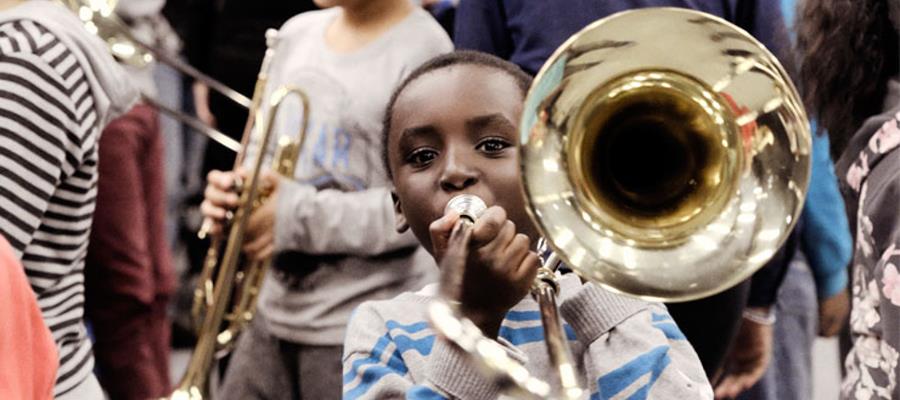
Démos Orchestra © Jef Rabillon
At the end of June, the Sistema Europe board members Maria Majno and Marshall Marcus were in Paris at the Démos Conference. Founded in 2010, Démos is – like El Sistema – a project which aims to improve the situation of children living in difficult social circumstances through exposure and access to music and ensemble music making: Démos (Dispositif d’éducation musicale et orchestrale à vocation sociale).
This summer Démos extended the occasion of their end of year concert to add in a two-day colloquium on the results of their work so far. As part of this gathering, Maria and Marshall were invited to introduce the Sistema concept and its European application to members of the Paris Philharmonic’s programme.
The meeting invited representatives of similar projects from around the world to provide input on their own experiences and looked to analyse the impact of collective musical practice on children’s cognitive development and sense of emotional well-being as well as to evaluate its influence on the professional practices and the local environments of those involved.
With the attendance of social scientists, ethnomusicologists, philosophers and professional actors from a variety of initiatives, this colloquium investigated the effect of intercultural engagement on perceptions of the other and definitions of identity and discussed the potential of life in orchestras as a means of reinvesting in and reinventing the concept of citizenship.
And, on its second day, Maria Majno and Marshall Marcus introduced the Sistema Europe approach in an hour-long discussion entitled Sistema Europe: Origin, Approach and Diversity.
To listen to this speech (partially in French, partially in English) in full, click on the video below. To find out more about the colloquium and to watch recordings of all of its discussions, click here (in French). Démos’ self-description (in French) can also be accessed by clicking here.
Watch Maria Majno and Marshall Marcus speak at Démos' June colloquium!
(You can change your sound settings to listen to this video in English or French. Click here for instructions as to how to make the necessary changes)